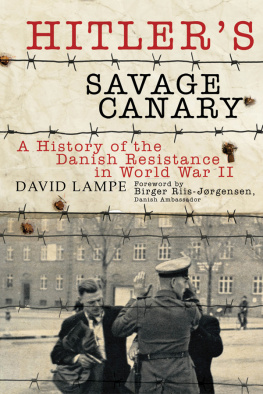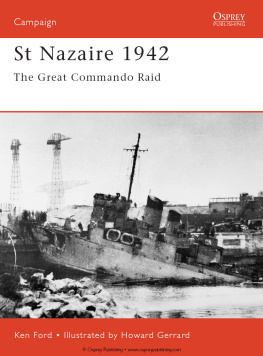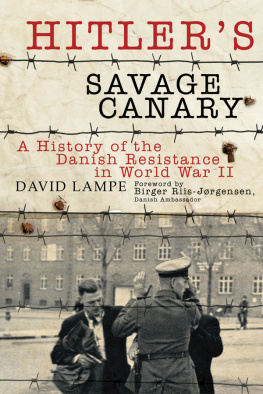FOREWORD
T HE story of the German occupation of Denmark from 1940 to 1945 is a tangled one, a story with many contradictions and layers. The complex narrative can be divided into three parts: the overwhelming military power subjugating a small and defenceless neighbour, the collaboration that took place, and the resistance. As for the whole war, the story of the Danish occupation carries within it many tales of humiliation, human strength, courage and compassion, of collective and individual acts of bravery, and of altruism amidst brutality, destruction and moral relativism.
The Resistance movement began its work early on in the war, but in August 1943 matters reached a turning point. General strikes broke out in many towns and cities. The popula tion gave a clear signal that the days of ambiguity had to end. The government stood down and the leaders of the Resistance movement increasingly led Denmark into the Allied camp.
In October 1943 the occupiers attempted to deport the Danish Jews. It is a source of pride to many Danes, that by far the largest part of our Jewish compatriots were helped by neighbours and other ordinary citizens to escape across the sea to neighbouring Sweden. The Resistance movement was warned, by individual Germans who had inside information about the impending operation, only days before the planned deportation.
Through strikes, defiance at work sites, and damage to physical property, non-violent resisters attacked the economic interests of the invaders. Through underground publishing, an alternate network of communication was established to subvert the lies of the occupiers propaganda. By involving so many civilians in strikes, demonstrations, and other forms of opposition, Danish resisters forced the Germans to stop the most violent reprisals, as they understood the German need to maintain normality in Denmark as much as possible.
David Lampes book is as relevant today as when it was first written. It describes the experiences of individuals who, almost as a matter of course, risked their lives to defy the Nazis in Denmark. It tells of their bravery, courage, and selflessness. Still today, Danes, Brits and many others risk their lives almost as a matter of course. They do so to protect us from seeing Afghanistan again becoming a basis for terrorism aimed at our societies.
Courage is resistance to fear, mastery of fear not absence of fear, wrote Ernest Hemingway in 1942. Other tales about great courage and bravery could have been recounted. But each of the stories in this book tells of individuals, common citizens, who, when humanity and civility are threatened, defy the danger to defeat tyranny and oppression.
Apart from being truly fascinating and readable accounts of Second World War heroism, these stories also help us to better understand some of the mechanisms that induce ordinary people to overcome and master fear under extreme conditions.
AMBASSADOR BIRGER RIIS-JRGENSEN
London, 2010
AUTHORS INTRODUCTION
T HIS book is about a strange and little-known part of the Second World War; it concerns Denmarks resistance to five years of German occupation. It does not pretend to be either a formal history of that occupation or a complete catalogue of Resistance activity, organized or individual. Its subject has contemporary interest, for these storiesall of them truepoint to the conclusion that even the smallest and least prepared country is not beaten simply because foreign troops overwhelm itnot, at least, while there are private places in which to scheme and people to do the scheming.
Without resistance, Denmark would have had an easier war, but from the beginning individual Danes felt they must do something to preserve their national self-respect. Slow in starting, they eventually produced Europes prototype Resistance organization, good enough to earn Field-Marshal Mont -gomerys praise; he called it second to none. It alone placed Denmark on the list of Allied nations that defeated Hitler. Much of its success stemmed from the fact that, although the Germans never learned to understand the Danish mentality, from the beginning the Danes understood the Germans.
The Wehrmacht claimed to be moving into Denmark to protect it against British invasion. In the process, the Germans said, two friendly Aryan neighbours would be united. According to a story still popular in Copenhagen, King Christian told Hitler, Really, Im much too old to take on the added responsibility of ruling Germany, too.
The Nazis permitted the Danish Government to remain in office, and at first neither Denmarks police nor military were en tirely disbanded. Disappointed when they later allowed the Danes a free election and no Quisling emerged victorious, the Nazis more realistically arranged to benefit from the little countrys high farm output, and from the fact that its shipyards and precision engineering factories were unlikely to be bombed.












